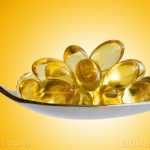
Header Menu
Make your own raw apple cider vinegar
Friday, March 01, 2019 by D. Samuelson
http://www.naturalnewsrecipes.com/2019-03-01-make-your-own-raw-apple-cider-vinegar.html

The word vinegar, says Survivalblog.com, is translated into “sour wine” in French, but that doesn’t mean that wine is the sole source of this versatile and healthful liquid. Vinegar starts with the fermentation of a “naturally sweet cider (whether grape, apple, grain, or another juice).” The first step is turning this vinegar into an alcoholic beverage called hard cider. When hard cider is fermented again, the end result is vinegar.
To begin your vinegar adventure, you can use vinegar starter materials, but organic fruit, fruit scraps, honey or sugar will work just as well. Make sure your water is not chlorinated and your containers are non-metal; quart mason jars are excellent. Instead of tight lids, cloth covers are needed to allow the air to circulate; cheesecloth works best. Apple cider vinegar is particularly healthy. According to The Vinegar Book, by Emily Thacker, apple cider vinegar helps the heart with a dose of pectin, has several enzymes, “more than thirty important nutrients, a dozen minerals, [and] over half a dozen vitamins and essential amino acids.” Make sure your apples are non-GMO and organic for the most healthful results.
Apple cider vinegar recipe
- Choose three or four large apples; include both tart and sweet — Thoroughly wash and then dice the apples, including the peels, cores and seeds, into cubes ranging from 1/2 to 3/4 inch. Place the apples in the mason jar, filling it up about halfway.
- Add lukewarm water and honey — Pour in lukewarm, filtered, non-chlorinated water until it rests 3 inches below the rim. Add 1/2 cup honey or raw organic sugar.
- Cover with two layers of ultrafine cheesecloth — Your vinegar needs to breathe to pass out the gasses that will be produced. Use a strong rubber band to hold the cheesecloth in place.
- Store out of direct sunlight for one to two weeks — You’ll want to stir the mixture once or twice each day as the fermentation process bubbles. As the liquid changes, your nose will notice.
- When apples fall to the bottom of the jar, strain and pour into new jar — Between one and two weeks, but not more than two, when the apple pieces are lying at the bottom of the jar, the first fermentation process is done. This is hard apple cider. You’ll need to strain this mixture through a “clean dry cheesecloth over a mesh colander” into another mason jar.
- Repeat step three, then store out of sunlight for three to four weeks — Cover the mixture with cheesecloth and a rubber band, and store away from sunlight. Within three to four weeks, the hard cider turns into acetic acid; you’ll see sediment on the bottom of the jar. A “milky culture” may form on top – this is starter culture.
- Taste test after three weeks; adjust as necessary — If your vinegar has the taste you’re looking for, then strain it into another mason jar with a regular lid. Store the mixture out of direct sunlight. If it doesn’t past your taste test, let it ferment for another week or two, but test weekly. Too strong? Strain again and add more water. Starter culture on top? Strain and dilute. Store accordingly; it will not spoil.
You’ve just made a natural, healthful mixture that can be used in salad dressings, dips, sauces and soups and in many other culinary delights. But that’s not all – vinegar can help with sunburn and skin conditions. Add vinegar to cleaning cloths or sponges to take advantage of its antibacterial properties. It can also be used to clean “tea and coffee stains from pitchers, pots, mugs and glasses.” The time tested combination of vinegar and baking soda can clear out a stopped up toilet and, when used as a paste, help scour away mineral deposits.
Discover more healing properties of vinegar and other foods at Nutrients.news.
Source include:
Tagged Under: Tags: apple cider vinegar, apple cider vinegar benefits, goodhealth, natural remedies, non-GMO apples, recipe for apple cider vinegar, recipes





